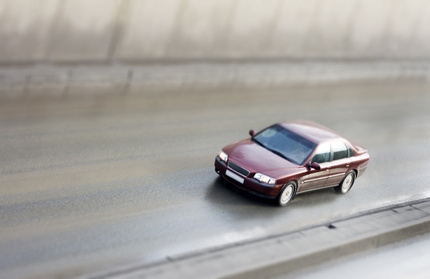
A car requires cooling when burning fuel. The mixture of water and anti-freeze that pushes through the radiator helps manage the cooling system. If your vehicle runs hot, there are a variety of things to consider when pinpointing the cause.
A car engine can run hot if it is low on coolant. When a car leaks coolant, there is not enough liquid to absorb the excess heat from the engine. You can lose coolant from radiator hoses, cracks in the radiator, a busted water pump, a blown gasket, a broken radiator cap or a damaged heating system.
A fan circulates air through the radiator when the car is not moving or going slowly. Some fans operate with a pulley system using a belt. If the belt comes off or becomes loose, the fan will stop working and most likely the water pump will not work either. The engine will start to overheat fast. In addition, if you have a vehicle with an electric fan, you may experience overheating if there is a problem with the thermostat that operates the fan or the fan motor.
The thermostat regulates the flow of water in the engine. Sometimes the thermostat stops working after a couple of years. A thermostat that is not completely open, or is jammed in the closed position, can make an engine run hot.
Keep your vehicle clean, even inside the hood. Anything that can obstruct the engine, whether inside or out, can cause it to overheat. For instance, over time your vehicle builds up deposits on the inside of the radiator that can hinder the coolant flow. Anything that blocks the cooling plates of the radiator can reduce the airflow.
Sometimes, your car's overheating has nothing to do with the cooling system. If you are low on oil or have a defective oil pump, motor friction can cause your engine to run hot. In addition, your car can overheat if you blow a head gasket.